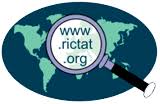Ah, spring – the season of blossoms but also the season of hay fever. For many, it’s a time of itchy, watery eyes, constant sneezing, and the general discomfort of allergic rhinitis. As pollen counts rise, so do our symptoms, often lingering from March through September. But fear not! Mother Nature, though sometimes cruel, also offers solutions within her bounty – particularly in our food.
Foods to Avoid
First, let’s avoid foods that can worsen hay fever symptoms. High-histamine foods like chocolate, tomatoes, and fermented foods can intensify reactions. Histamine liberators such as strawberries and citrus fruits trigger histamine release, aggravating symptoms. Wheat-based products and dairy stimulate mucus production, exacerbating congestion.
Foods to Embrace
But don’t despair! Incorporating anti-inflammatory foods into your diet can ease hay fever woes. Foods rich in quercetin, like onions and berries, disrupt histamine receptors. Beta-carotene-packed foods such as sweet potatoes and carrots reduce inflammation. Vitamin C-rich foods like peppers and kale boost immune function.
Hydration and Healing Brews
Stay hydrated with plenty of water to thin mucus and alleviate congestion. Green tea’s antioxidants bolster the immune system, while ginger tea reduces allergic reactions by lowering IgE levels. Peppermint tea’s menthol soothes sinus symptoms, and nettle tea relieves inflammation and nasal congestion.
Anti-Inflammatory Allies
Combat hay fever’s inflammatory nature with omega-3 fatty acids found in oily fish, flaxseed, and walnuts. Incorporate coconut oil into cooking or smoothies for its anti-inflammatory properties. Herbs like parsley and thyme and spices such as turmeric and ginger relieve inflammation.
Exploring Hidden Triggers
Beyond pollen, hidden food intolerances may exacerbate hay fever. Consider exploring testing options for food intolerances to uncover potential triggers.
With these dietary adjustments and holistic approaches, you can navigate hay fever season with greater ease and embrace the beauty of spring without discomfort. Remember, nature provides the remedy – it’s up to us to harness its healing power.
The best way to find out if you have hay fever is to have a quantitative IgE test. ‘Quantitative’ means the test shows whether you are narrow-minded and how firm your reaction is. Home test kits for environmental allergies are available, or you can speak to your health practitioner for more information.










